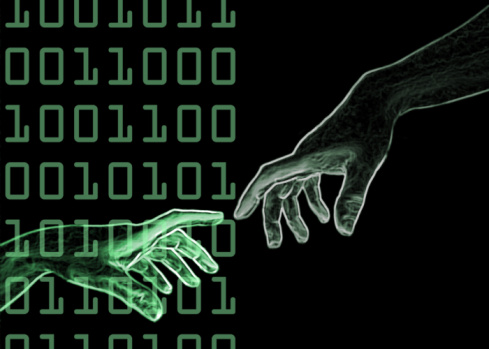A Prayer and Fasting Devotional
 A friend of mine founded a global consulting firm and hosts an annual conference for policy makers and CEOs. Over several days they look at global trends in a number of areas through panels and seminars. Last year two of the panels were:
A friend of mine founded a global consulting firm and hosts an annual conference for policy makers and CEOs. Over several days they look at global trends in a number of areas through panels and seminars. Last year two of the panels were: Media Gone Mad: Living with Information Overload: How can we be sure of staying ‘unspun’ in a world where we have never been so connected—and where it has never been so apparent that knowledge is power?
What’s Next: Hinge Events Ahead in 2015: The perils in prediction—in geopolitics as in other walks of life—arise from the fact that we simply do not have enough information.
We are consumed in the 21st century with the pursuit and acquisition of knowledge. We read voraciously online and in print. We make ourselves gatekeepers of knowledge because it elevates and affirms us. English philosopher, statesman, and author Francis Bacon provided the succinct quote above in the 16th century, that “knowledge is power.” It is that and more today.
As the conference panels above indicate, we have access to enormous amounts of information and knowledge, and yet we don’t know enough. We have an extraordinary amount of information about ourselves, our world, even about God... but God’s ways are still beyond our understanding. And so it comes down to discernment and prayer and walking by faith. It comes down to dependence, a decidedly un-21st century quality.
In Luke 6, part of which consists of the Beatitudes (“Blessed are…”), we see Jesus making pronouncements about blessings and woes, about this world and the next, about things tangible and intangible, about love and judgment, about fruit and destruction – in strangely paradoxical ways.
In this chapter we see the truth of Isaiah 55:8, "’For my thoughts are not your thoughts, neither are your ways my ways,’ declares the LORD.” Jesus reminds the crowd that, if we desire to live as God’s redeemed people, or as part of His redemptive plan for the world, we had best not expect that our finiteness is able to understand the infinite.
We have been called to live by faith in Christ. As Jesus came not only to redeem us but also to restore us as God’s instruments in mediating His rule and blessings in creation, we embrace this in the power of God’s Holy Spirit. If nothing else, Luke 6 reminds me that failing to live by faith will result in me forever viewing this chapter as a paradox rather than as normative; that I will remain childlike in my faith and will pursue knowledge that simply shows my ignorance in the ways of God.
This time of fasting and prayer reminds us to actively seek God and to make daily, intentional decisions to walk by faith in a world where “common sense” and our cultural narrative lead us to act otherwise.
As the conference panels above indicate, we have access to enormous amounts of information and knowledge, and yet we don’t know enough. We have an extraordinary amount of information about ourselves, our world, even about God... but God’s ways are still beyond our understanding. And so it comes down to discernment and prayer and walking by faith. It comes down to dependence, a decidedly un-21st century quality.
In Luke 6, part of which consists of the Beatitudes (“Blessed are…”), we see Jesus making pronouncements about blessings and woes, about this world and the next, about things tangible and intangible, about love and judgment, about fruit and destruction – in strangely paradoxical ways.
In this chapter we see the truth of Isaiah 55:8, "’For my thoughts are not your thoughts, neither are your ways my ways,’ declares the LORD.” Jesus reminds the crowd that, if we desire to live as God’s redeemed people, or as part of His redemptive plan for the world, we had best not expect that our finiteness is able to understand the infinite.
We have been called to live by faith in Christ. As Jesus came not only to redeem us but also to restore us as God’s instruments in mediating His rule and blessings in creation, we embrace this in the power of God’s Holy Spirit. If nothing else, Luke 6 reminds me that failing to live by faith will result in me forever viewing this chapter as a paradox rather than as normative; that I will remain childlike in my faith and will pursue knowledge that simply shows my ignorance in the ways of God.
This time of fasting and prayer reminds us to actively seek God and to make daily, intentional decisions to walk by faith in a world where “common sense” and our cultural narrative lead us to act otherwise.
Scott Crosby
Ministry Director, Christian Union New York City




